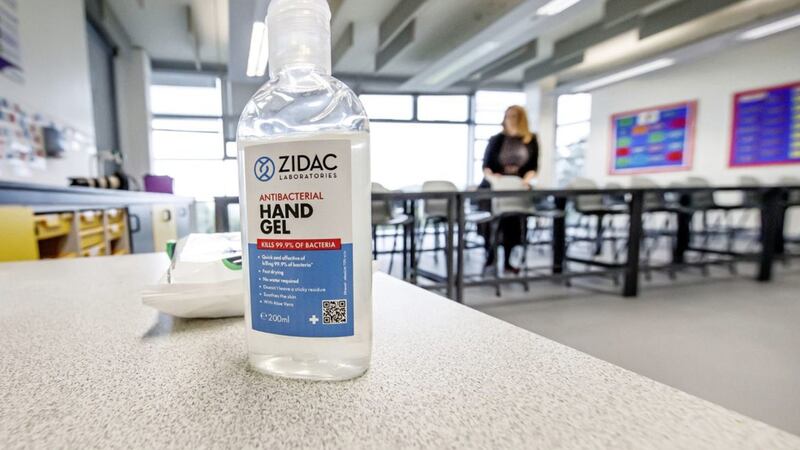SECONDARY school teachers in the Republic have voted to take industrial action unless the government addresses Covid-19 safety in schools.
The ASTI union wants a comprehensive testing programme and additional learning support when schools are forced to shut.
It said strike action would be a last resort and it wanted schools to remain open.
Members mandated the union to pursue several issues.
This includes the provision of IT for pupils and teachers to facilitate continuity of learning where there are closures or self-isolation.
The ballot of 6,759 members returned a vote of 5,359 in favour of the safety measures.
The ballot paper said that government should address concerns by today.
A proposal for action or strikes if the Department of Education failed to enforce two-metre social distancing in every classroom was turned down.
Members also voted down action should the department fail to introduce free N95 masks - respiratory protective devices - to all pupils and teachers.
"ASTI members are clearly stating that they want schools to remain open for students during this pandemic," said union president Ann Piggott.
"They are demanding that the government step up and provide 24-hour test turnaround, a redefinition of close contacts for school settings, a comprehensive testing programme, and appropriate arrangements for teachers categorised as 'high risk'.
"We must be supported in sustaining education for our children and young people."
The union further agreed that it would not accept unilateral decisions by schools to implement changes to working conditions without consultation with teaching staff.
"Teachers are unwavering in their commitment to providing a quality education and to supporting their students at this stressful and uncertain time," said Ms Piggott.
"However, the ASTI will not countenance exploitative attempts to introduce unnecessary work changes without consensus which have a further negative impact on teachers’ work and workload. This smacks of crisis opportunism."
Labour education spokesman Aodhan O Riordain said the vote was a "wake-up call" for government.
"Some of the concerns expressed by ASTI members in relation to comprehensive and rapid testing, adequate protective gear, socially distancing in schools and the definition of a close contact along with long running issues in relation to pay inequality are reasonable and deserve a fair hearing from the minister," he said.
"Nobody wants industrial action, but schools are only functioning because of the professionalism and goodwill of staff."
He urged education minister Norma Foley to engage with the union to avert industrial action.








